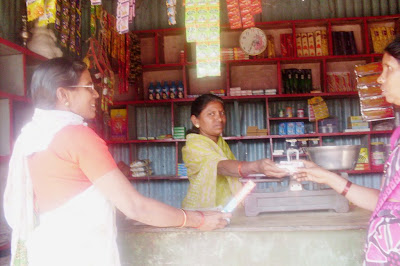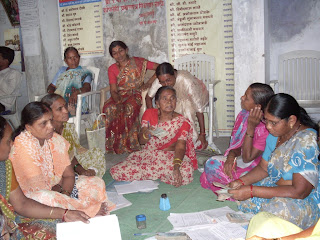Wardha emerged as the hub of farmers' suicides around ten years back. The numbers of farmers' suicides has come down in comparison to the past, but still needs intervention. To counter this, we have been implementing several programmes. Several farmers have participated and are currently doing so in various
activities based on our mandate described below. One such case study appears here. For details on steady increase in farmers' income, see the graph detailing net income of farmers before and after intervention by Chetana-Vikas. The mandate can be broadly divided into following 6 programmes:
1. Seed Sovereignty:
2. Field-based Soil and Water Conservation:
3. Development of Nutritious and Hardy Fruit Trees:
4. Self-Reliant Farming for a Self-Reliant Farmer:
5. Remunerative Prices to Agro-Produce based on Cost of Production:
We are part of several local, regional, national and international fora which fight for fair prices to the farmers.
6. Farmer-Centred, Consumer-Friendly Fair Trade:
We are active participants and advocates of Participatory Guarantee System (PGS) of certification for organic produce.
1. Seed Sovereignty:
- Identification
- Selection, &
- Propagation
2. Field-based Soil and Water Conservation:
- Structures such as bunds, check dams, rain pits and farm ponds with local material.
- Appropriate land use planning to decide area under farming and perennial green cover.
- Appropriate farming and forestry practices to decide identity of species comprising this green cover.
 |
| Rain Pit |
3. Development of Nutritious and Hardy Fruit Trees:
- Identification
- Selection, &
- Propagation
 |
| A mango variety bearing fruits twice a year. Photo taken in July. The fruit matured in September. |
4. Self-Reliant Farming for a Self-Reliant Farmer:
- Development of farming methods and technologies that require low external inputs but are highly regenerative of internal resources such as manure.
- A consortium of about 40 companion crops where food and nutritional security is achieved through subsistence crops and financial security is achieved through cash crops.
- Based on farm-land manure where even less is enough. Green manure through identification, selection and propagation of seemingly innocuous and weedy species such as grasses and several fabaceous species.
- Doing away with pesticides (through pest resistant varieties and crop combinations) and weedicides (by using weeds as green manure).
- Enhanced productivity, profitability, sustainability, stability, quality of life and freedom from anxiety and debts.
 |
| Low-external input multi-cropping technique developed at the Alternative Agriculture Resource Centre, Chetana-Vikas |
5. Remunerative Prices to Agro-Produce based on Cost of Production:
We are part of several local, regional, national and international fora which fight for fair prices to the farmers.
6. Farmer-Centred, Consumer-Friendly Fair Trade:
We are active participants and advocates of Participatory Guarantee System (PGS) of certification for organic produce.















































